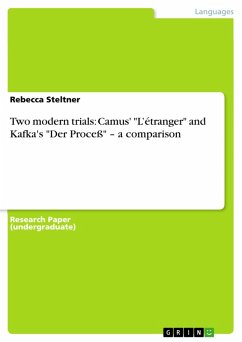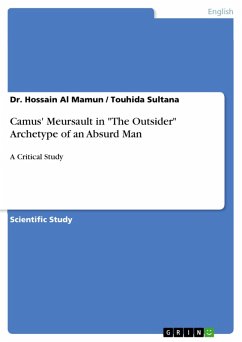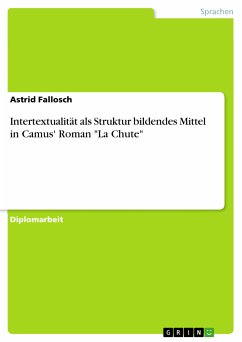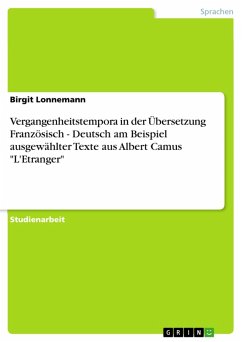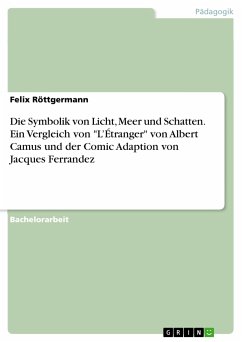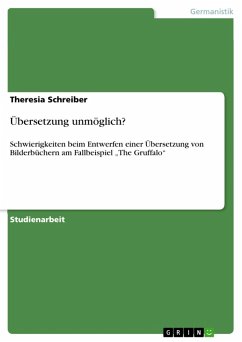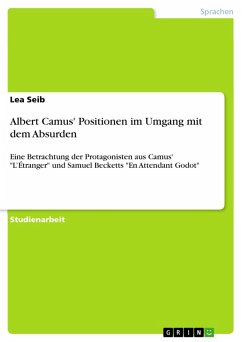Research Paper (undergraduate) from the year 2003 in the subject Romance Studies - Comparative Studies, grade: 67 Punkte (2+) (B+), University of Canterbury (School of European Culture and Languages), language: English, abstract: To begin with I shall present an overview of some of the most common or most debated interpretations of the two novels and the issues they raise. I also question whether it is legitimate to compare Camus' L'étranger, which is often read alongside his philosophical essay Le Mythe de Sisyph,e to Kafka's Der Proceß, which might be expressive of a philosophy but whose author only ever expressed himself in literary writing. In the following the novels are then compared simultaneously and their similarities and differences examined from different angles, such as their treatment of their common theme of "law, guilt and trial" in part two, which I see partly under the aspect of the absurd. The idea of the absurd is also relevant when comparing the two main characters Josef K. and Meursault later on. For the further interpretation of both the characters, but especially to solve the riddles surrounding Meursault's nature and the questions of reader's sympathy, the narrative perspective is crucial and is examined in part four. Subsequently, the theme of philosophical ideas being expressed in literary form becomes important again as I look at the use of image and symbolism in L'étranger and Der Proceß as well as at the genres of the French récit and parable and the philosophical and literary implications of the choice of genre, symbolism or narrative perspective. Kafka's Der Proceß and Camus' L'étranger have one important thing in common and that is that both are extremely rich novels which can be read according to a large number of codes (or preconceptions). Camus himself has praised Der Proceß "It is the fate and perhaps the greatness of that work that it offers everything and confirms nothing", (Sisyphus, p. 124). This is certainly a principle that Camus aspires to in his own fiction and successfully as Thody confirms: "L'étranger seems to be inexhaustible in the different ways in which it can be analysed"3. I hope to be able to do justice to these many angles and show how rich these two novels are. To summarise some of the many interpretations of Kafka's Der Proceß let me begin with a political reading...
Dieser Download kann aus rechtlichen Gründen nur mit Rechnungsadresse in A, B, BG, CY, CZ, D, DK, EW, E, FIN, F, GR, HR, H, IRL, I, LT, L, LR, M, NL, PL, P, R, S, SLO, SK ausgeliefert werden.

